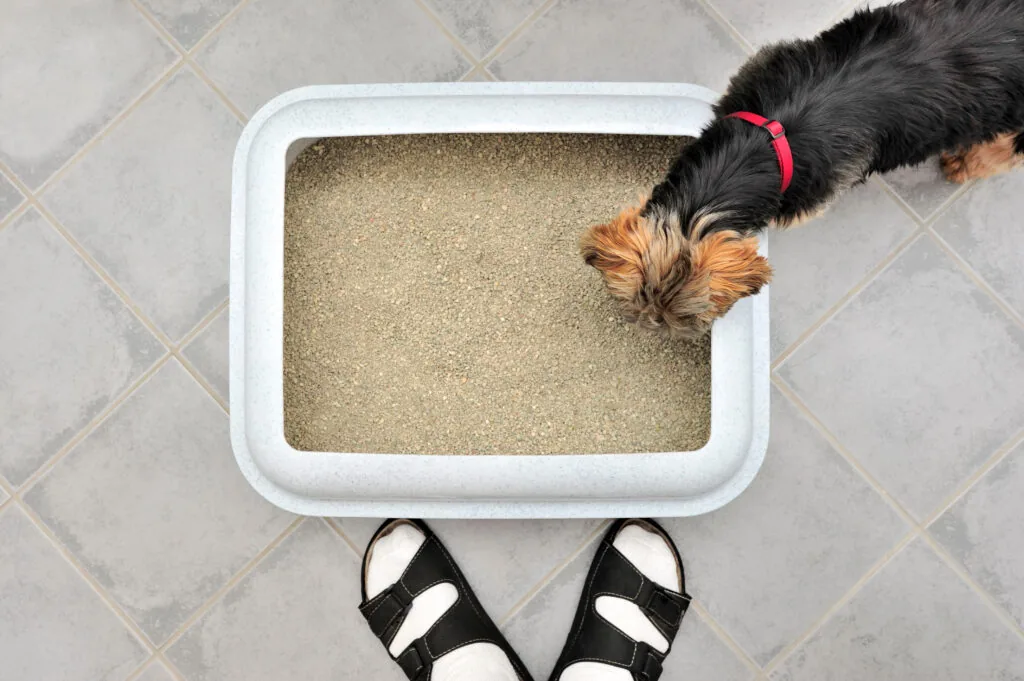Why Do Dogs Eat Cat Poop? Canine Behavior Explained
Welcome to our blog at Caring Hearts Animal Hospital! Today, we’re delving into a question that many dog owners find perplexing: Why do dogs eat cat poop? While odd to us, this behavior is quite common among our canine companions. Understanding the reasons behind this behavior and its potential health risks is essential for ensuring the well-being of your pets. If you’re seeking more insights or need professional advice, get in touch with Caring Hearts at 704-893-2799. Our hospital serves Matthews, Stallings, Indian Trail, Mint Hill, and surrounding areas.

Unraveling the Mystery: Why Dogs Are Attracted to Cat Poop
Dogs are naturally curious animals with a strong scavenging instinct. This behavior dates back to their ancestral roots and plays a significant role in their attraction to cat poop. This is because, for dogs, cat feces often smell like cat food, which can also be appealing to dogs due to its high protein content. Additionally, dogs explore the world through their senses, and their sense of smell is particularly powerful. This exploratory nature often leads them to investigate and sometimes consume cat poop.
The Role of Diet and Nutrition
A dog’s diet can influence its propensity to scavenge. Dogs fed a diet lacking in certain nutrients may be more inclined to seek out alternative food sources, one of which might be cat poop. This behavior, known as coprophagia, can sometimes indicate dietary imbalances or deficiencies in dogs.
Health Risks Associated with Dogs Eating Cat Poop
Is it harmful for dogs to eat cat poop? In most cases, probably not. However, consuming cat poop can pose several health risks to dogs. One primary concern is the transmission of parasites and diseases. Cat feces can harbor harmful pathogens like Toxoplasma gondii, E. coli, and various worms, which can be transmitted to dogs upon ingestion. Additionally, the consumption of cat litter, often clumped together in the feces, can lead to digestive tract obstructions and other complications.
Recognizing Symptoms of Illness
Dog owners need to be aware of the signs of illness that can result from consuming cat feces. Symptoms such as vomiting, diarrhea, lethargy, or changes in appetite should prompt an immediate visit to the veterinarian. Early detection and treatment are key to preventing more serious health issues.
Prevention Strategies for Dog Owners
Preventing your dog from eating cat poop is an important aspect of pet care. It keeps this undesirable and unsanitary behavior under control, and it can keep your dog safe.
One effective prevention strategy is to keep the cat’s litter box well out of your dog’s reach, possibly in a room only accessible to the cat. Regular cleaning of the litter box also reduces the temptation for dogs. Additionally, maintaining a well-balanced diet for your dog can decrease their inclination to scavenge for nutrients. Training your dog to respond to commands like “leave it” and supervising them, especially during walks or in multi-pet households, can also play a role in curbing this behavior.
When to Consult with a Veterinarian
Understanding why dogs eat cat poop and taking steps to prevent it are important for the health and well-being of your pet. By being proactive and attentive to your dog’s behavior and diet, you can help ensure they lead a healthy, happy life.
If you notice your dog frequently eating cat poop despite your best prevention efforts, it’s wise to consult with a veterinarian. This ongoing behavior can sometimes indicate underlying health issues or nutritional deficiencies. At Caring Hearts Animal Hospital, our team is here to help you with any concerns you may have about your pet’s behavior or health. Don’t hesitate to call us at 704-893-2799 for an appointment or more information.
Recent Posts
About Us
At Caring Hearts Animal Hospital, we’re not your typical veterinarian in Matthews, NC. We have been welcoming dogs and cats from Mint Hill, Indian Trail, and Union County for over 15 years, and our team is comprised of pet owners, too–so we appreciate the bond you share with your companions!
